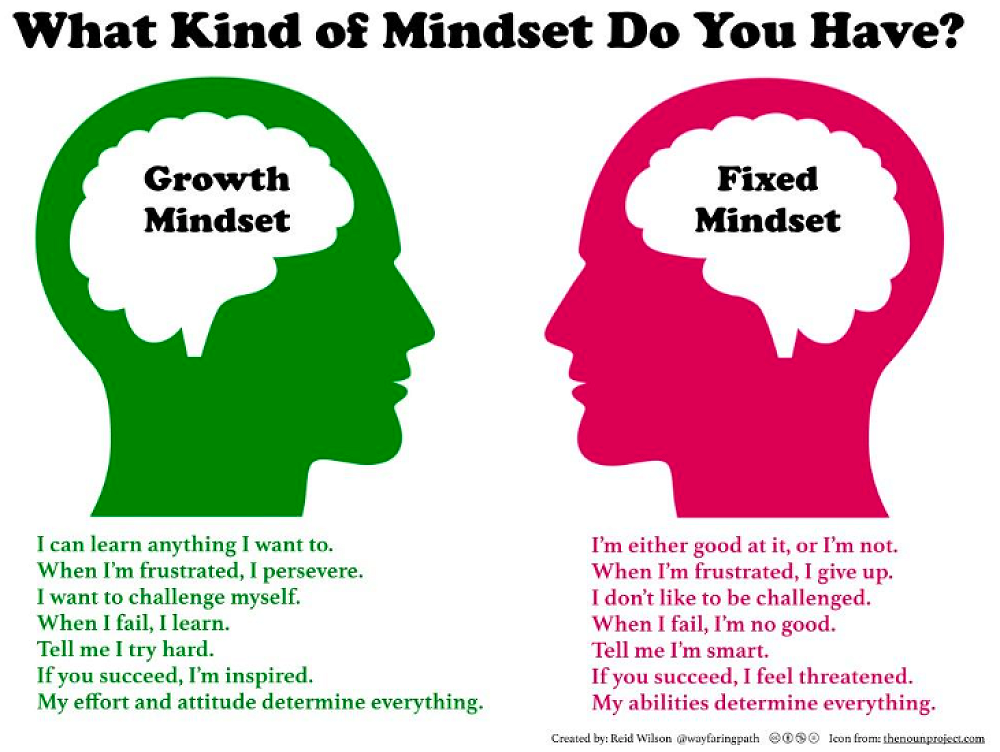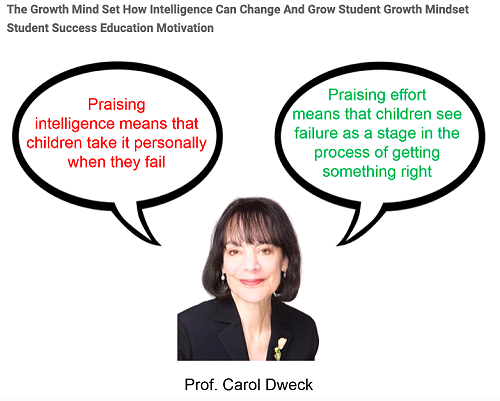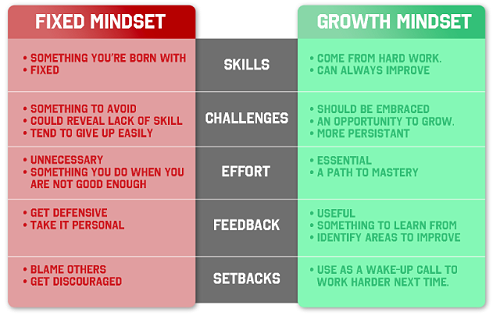
What is a growth mindset, and why does it matter?
Carol Dweck a psychologist and Professor of Psychology at Stanford University coined the terms fixed mindset and growth mindset to describe the underlying beliefs people have about learning and intelligence. When students believe they can get smarter, they understand that effort makes them stronger. Therefore they put in extra time and effort, and that leads to higher achievement.
Students with a fixed mindset believe that their intelligence and talent are innate traits that don’t change. For example, they might say “I just can’t learn math.” These students typically worry about not looking smart, get upset by mistakes, and give up sooner on tough tasks.
Students with a growth mindset believe that ability can change as a result of effort, perseverance, and practice. You might hear them say, “Math is hard, but if I keep trying, I can get better at it.” Students with a growth mindset see mistakes as ways to learn, embrace challenges, and persist in the face of setbacks. High-performing students and low-performing students may have either mindset.
Studies show students with a growth mindset:
- Are more intrinsically motivated and engaged, even when work is challenging
- Are more likely to review or revise their work
- Score better on math and verbal standardized tests
- Fail fewer classes
- Are more likely to persist in high school and university
- Work harder towards achieving their potential and
- report they have higher levels of self satisfaction.
Ensuring our ākonga (young people) understand what a fixed v growth mindset is, is one of the many tools we use at Milford!
Carol Deck is a renowned researcher and you can read more here.
Gallery

